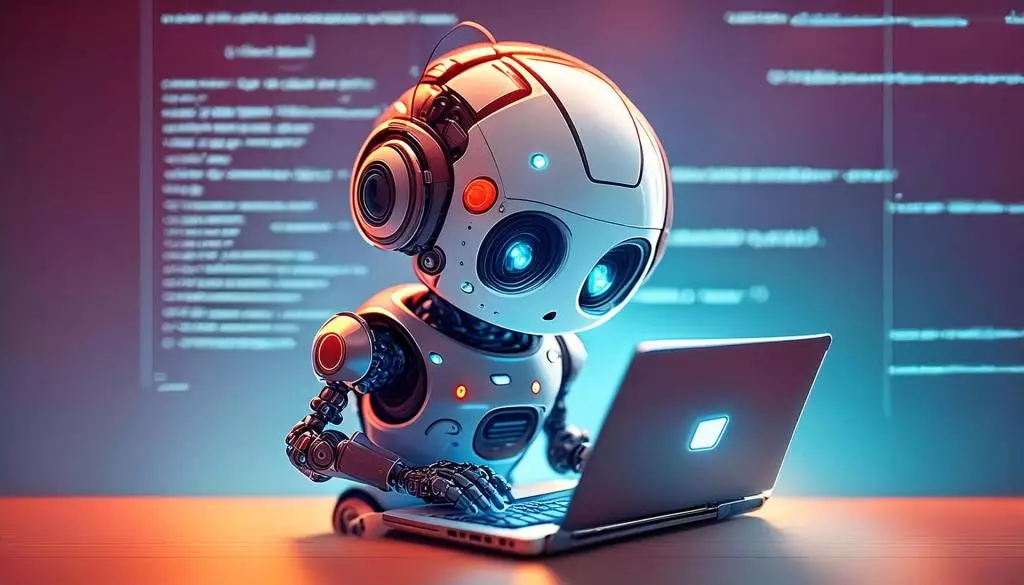As technology relentlessly advances, the way we create software is undergoing a significant transformation. The emergence of AI-powered coding platforms marks a pivotal point in the coding landscape, where traditional coding practices are being replaced or augmented by intelligent agents. Google’s recent introduction of Jules, an autonomous coding assistant, is a prime example of this seismic shift. Announced during Google I/O, Jules is not just a new tool in the tech giant’s arsenal; it represents a broader trend of utilizing artificial intelligence to streamline and enhance the coding process.
This innovation is part of a larger contest among tech behemoths to dominate the burgeoning field of coding assistance. The asynchronous capabilities of Jules allow developers to delegate mundane tasks, enabling them to focus on more complex aspects of development. This feature is particularly appealing in an age where multitasking has become a necessity rather than a luxury.
Jules: A New Frontier for Developers
Jules underscores a vision where coding becomes less about standing in front of a screen for hours and more about strategic oversight. According to Josh Woodward, Google’s VP of Labs, the idea is to create an “asynchronous coding agent”—an assistant that relieves developers of repetitive tasks. The implications of this are profound, as it could mean faster development cycles, fewer bugs, and ultimately, a more efficient workflow.
The integration of Jules with platforms like GitHub expands its functionality. Developers can employ it to fix bugs, create automated tests, or consult documentation—all while working on other projects. This ability to run tasks within a virtual environment, complete with reasoning and even audio summaries, signifies an unprecedented leap toward a harmonious coexistence between human developers and AI agents.
Competition Breeds Innovation: Codex and GitHub Copilot
However, Google is not alone in championing this new way of coding. OpenAI’s Codex has captured significant attention, evolving from a mere coding model to a comprehensive coding agent capable of performing similar tasks as Jules. The recent unveiling of GitHub Copilot Agents adds another layer to this competition, elevating asynchronous coding into the mainstream.
These advancements elicit excitement and skepticism in equal measure. While the anticipation around these technologies is palpable, it raises questions about the implications for developers. Will they become reliant on these tools, risking the erosion of fundamental coding skills, or will AI serve as a catalyst that empowers them to achieve more?
The Shift Toward ‘Vibe Coding’
One of the underlying trends driving this innovation is “vibe coding,” which emphasizes generating code through intuitive prompting rather than conventional coding practices. This significant deviation from traditional methods reflects a broader cultural shift within technology—where creativity and efficiency take precedence over painstaking code syntax.
Companies like Google are now competing not only in providing coding solutions but also in redefining the very nature of how we understand coding. The advent of platforms such as Firebase and Code Assist suggests that options for non-coders and developers alike are expanding rapidly. With AI features seamlessly integrated into these tools, individuals can now build sophisticated applications without having extensive coding backgrounds.
The Democratization of Development
Perhaps one of the most transformational aspects of these advancements is the potential for democratizing software development. Google’s Firebase empowers newcomers to experiment and create their applications, embodying the principle that technology should be accessible to all. The introduction of streamlined solutions that reduce the barrier to entry represents a substantial step toward fostering a diverse and inclusive landscape in tech.
Moreover, as Jeanine Banks from Google aptly points out, developers can leverage tools like AI Studio to refine their AI prompts. The combination of intuitive interfaces and advanced capabilities opens up a world of possibilities, fostering not only productivity but also creativity among developers of all skill levels.
As AI-powered coding platforms like Jules and Codex redefine the coding dynamic, the industry stands at the dawn of a new era. This evolution has the potential to not only enhance productivity but also pave the way for innovative developers who thrive in a technologically advanced environment. Exciting possibilities lie ahead for both new and seasoned programmers, as they navigate a landscape transformed by the fusion of human ingenuity and artificial intelligence.

